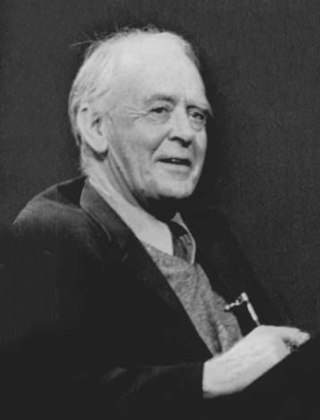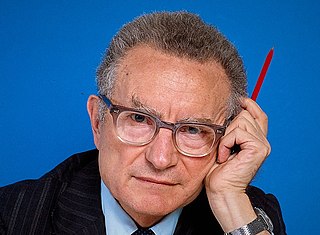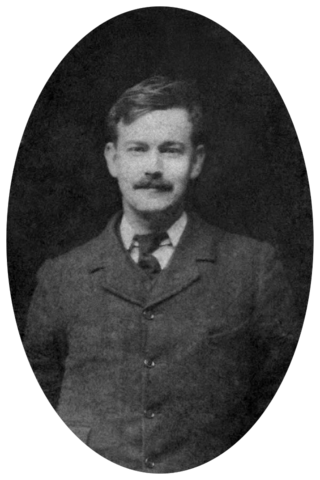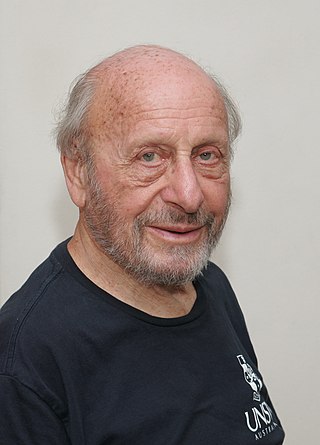Related Research Articles

Sir John Richard Hicks was a British economist. He is considered one of the most important and influential economists of the twentieth century. The most familiar of his many contributions in the field of economics were his statement of consumer demand theory in microeconomics, and the IS–LM model (1937), which summarised a Keynesian view of macroeconomics. His book Value and Capital (1939) significantly extended general-equilibrium and value theory. The compensated demand function is named the Hicksian demand function in memory of him.

Paul Anthony Samuelson was an American economist who was the first American to win the Nobel Memorial Prize in Economic Sciences. When awarding the prize in 1970, the Swedish Royal Academies stated that he "has done more than any other contemporary economist to raise the level of scientific analysis in economic theory".

James Bradford "Brad" DeLong is an American economic historian who has been a professor of economics at the University of California, Berkeley, since 1993.

Richard Henry Tawney was an English economic historian, social critic, ethical socialist, Christian socialist, and important proponent of adult education. The Oxford Companion to British History (1997) explained that Tawney made a "significant impact" in these "interrelated roles". A. L. Rowse goes further by insisting that "Tawney exercised the widest influence of any historian of his time, politically, socially and, above all, educationally".
The post-war consensus, sometimes called the post-war compromise, was the economic order and social model of which the major political parties in post-war Britain shared a consensus supporting view, from the end of World War II in 1945 to the late-1970s. It ended during the governance of Conservative Party leader Margaret Thatcher. The consensus tolerated or encouraged nationalisation, strong trade unions, heavy regulation, high taxes, and an extensive welfare state.
George C. Peden is an emeritus professor of history at Stirling University, Scotland.

Kenneth George "Ken" Binmore, is an English mathematician, economist, and game theorist, a Professor Emeritus of Economics at University College London (UCL) and a Visiting Emeritus Professor of Economics at the University of Bristol. As a founder of modern economic theory of bargaining, he made important contributions to the foundations of game theory, experimental economics, evolutionary game theory and analytical philosophy. He took up economics after holding the Chair of Mathematics at the London School of Economics. The switch has put him at the forefront of developments in game theory. His other interests include political and moral philosophy, decision theory, and statistics. He has written over 100 scholarly papers and 14 books.

Hugh Stretton was an Australian historian who wrote books on politics, urban planning, and economics, and a Rhodes Scholar. He was a key figure in the development and implementation of government policies affecting cities, particularly during the Whitlam government.
Orazio Attanasio is an Italian economist and the Cowles Professor of Economics at Yale University. He was the Jeremy Bentham Chair of Economics at University College London. He graduated from the University of Bologna in 1982 and London School of Economics in 1988. He then went to teach at Stanford and was a National Fellow at Stanford's Hoover Institution and a visiting professor at the University of Chicago before arriving at University College London. Currently he is also a research director at the Institute for Fiscal Studies (IFS) in London, co-director of the Centre for the Evaluation of Development Policies at the Institute for Fiscal Studies, and a director of the ESRC Centre for the Microeconomic Analysis of Public Policy.

Geoffrey Colin Harcourt was an Australian academic economist and leading member of the post-Keynesian school. He studied at the University of Melbourne and then at King's College, Cambridge.
Roger Edward Backhouse, is a British economist, economic historian and academic. Since 1996, he has been Professor of the History and Philosophy of Economics at the University of Birmingham.

Huw David Dixon is a British economist. He has been a professor at Cardiff Business School since 2006, having previously been Head of Economics at the University of York (2003–2006) after being a professor of economics there (1992–2003), and the University of Swansea (1991–1992), a Reader at Essex University (1987–1991) and a lecturer at Birkbeck College 1983–1987.
Peter Frederick Clarke, is an English historian.

Larry Randall Wray is a professor of Economics at Bard College and Senior Scholar at the Levy Economics Institute. Previously, he was a professor at the University of Missouri–Kansas City in Kansas City, Missouri, USA, whose faculty he joined in August 1999, and a professor at the University of Denver, where he served from 1987 to 1999. He has served as a visiting professor at the University of Rome, Italy, the University of Paris, France, and the UNAM, in Mexico City. From 1994 to 1995 he was a Fulbright Scholar at the University of Bologna. From 2015 he is a visiting professor at the University of Bergamo, located in Italy. He was a visiting professor at Masaryk University in the Czech Republic.
Pat Thane is a professor of Contemporary History at King's College London as well as a general historian. She teaches on the MA in Politics and Contemporary History: modules on Welfare and the State in Britain 1900–1945, 1945–present and contributes to modules on politics and society since c. 1900. She was the Leverhulme Professor of Contemporary British History in 1998–2001 at the Institute of Historical Research and a professor at the University of Sussex from 1994 until 2001.
William Dominic Joshua Abrams, is a Professor of Social Psychology and the Director of the Centre for the Study of Group Processes in the School of Psychology at the University of Kent. His research examines social identity, social cohesion, inclusion and exclusion, prejudice, discrimination, social attitudes, social change and social influence in groups across the life course. It spans social and developmental psychology and gerontology and uses a wide range of methods, most frequently surveys and laboratory and field experiments.
Wendy Joan Carlin, is a professor of economics at University College London, expert advisor to the Office for Budget Responsibility, and research fellow at the Centre for Economic Policy Research. Her research focuses on macroeconomics, institutions and economic performance, and the economics of transition.
Lawrence Black is an academic historian specialising in the political culture of twentieth-century Britain. Since 2012, he has been Professor of Modern British History at the University of York.
Kenneth George Young FAcSS FRHistS was a British political scientist and historian who was Professor of Public Policy at King's College London in its Department of War Studies. Earlier he was instrumental in the creation of the Department of Political Economy at KCL in 2010, and was its founding head of department.
Jose Ferial Harris, was a British historian and academic. She was Professor of Modern History at the University of Oxford from 1996 to 2008, and a fellow and tutor at St Catherine's College, Oxford, from 1978 to 1997.
References
- 1 2 "Professor Hugh Pemberton", University of Bristol. Retrieved 11 September 2018.
- ↑ "The Keynesian-plus experiment : a study of social learning in the UK core executive, 1960–1966", EThOS (British Library). Retrieved 11 September 2018.